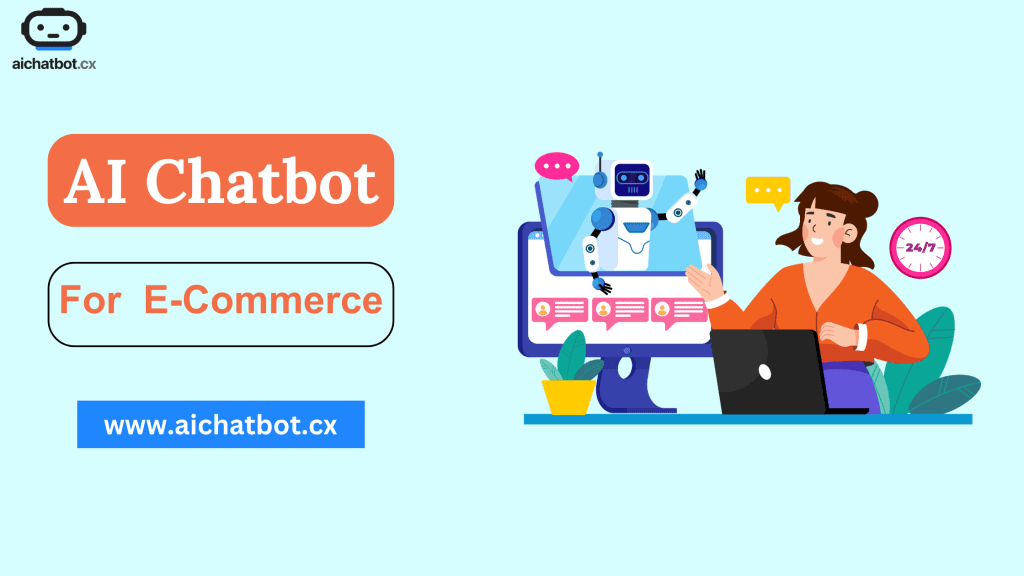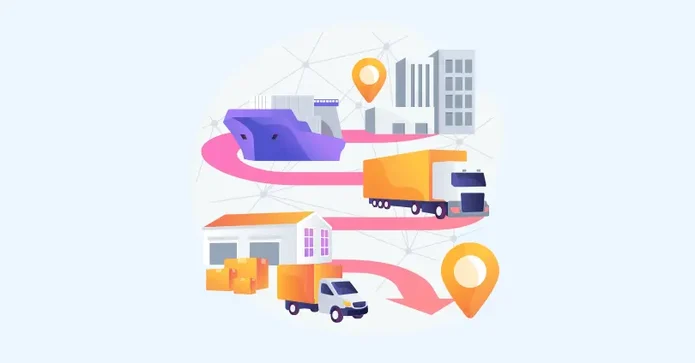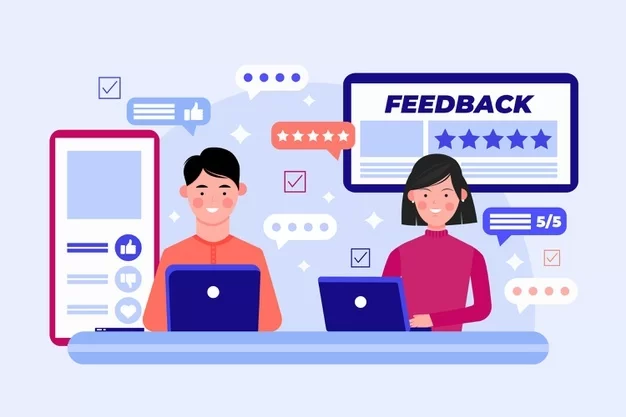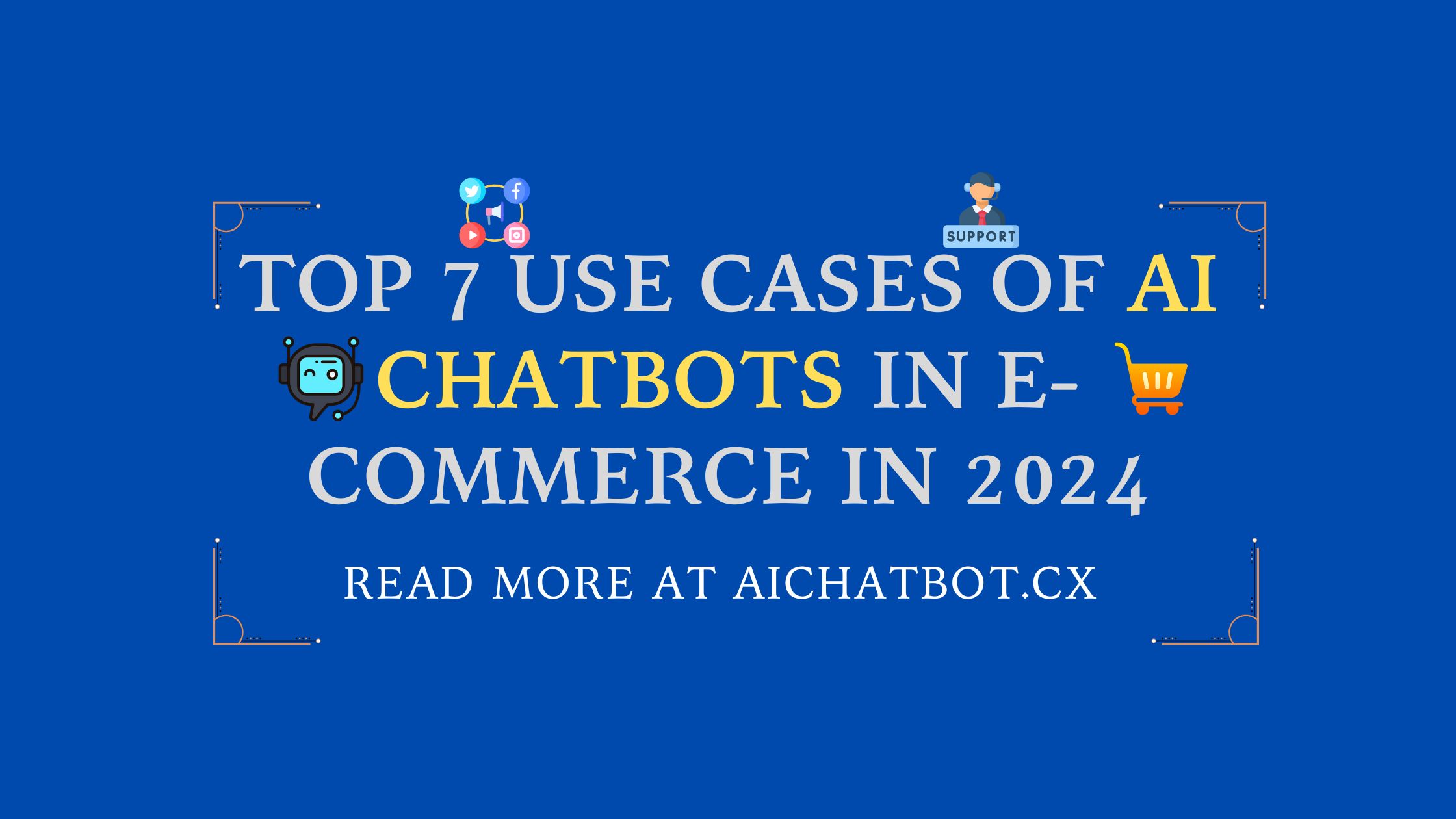E-commerce has evolved beyond mere transactions; it’s now about crafting seamless, personalized experiences that keep customers coming back. The pandemic accelerated the shift to online shopping, pushing businesses to innovate rapidly to meet the rising demands of increasingly discerning online shoppers. As a result, e-commerce companies face the dual challenge of meeting these heightened expectations while managing an ever-growing volume of inquiries and transactions. This is where conversational AI plays a pivotal role, enabling businesses to deliver real-time, personalized customer interactions that enhance satisfaction and loyalty.
Enter AI chatbots—the game-changers in this dynamic landscape. By automating customer interactions, AI bots are not only elevating service quality but also driving conversions and boosting overall business performance. With AI’s role in e-commerce projected to reach a market value of $45.72 billion by 2032, embracing these technologies is becoming a strategic necessity rather than a mere option.
In this article, we explore the top 7 use cases of AI chatbots in e-commerce in 2024. Discover how these intelligent tools are revolutionizing the way businesses engage with customers, streamline operations, and maintain a competitive edge.
What Are E-commerce AI Chatbots?
Think of AI chatbots as your virtual customer service agents—ready to assist, engage, and even upsell at any time of the day. These advanced software solutions are designed to simulate human conversation, providing instant, personalized responses to customer inquiries. Whether a shopper is curious about a product’s specs, needs help with an order, or wants to know about the latest promotions, an AI chat solution is there to guide them through the process, making the online shopping experience as smooth and enjoyable as possible. In the fast-paced world of e-commerce, where customer expectations are higher than ever, AI chatbots are proving to be indispensable.

Now, let’s explore how these chatbots are making waves in e-commerce:
1.Elevating Customer Support on Your Website
Imagine a customer browsing your website at midnight, unsure about which product to choose. Instead of waiting for the next business day, an AI chatbot instantly steps in, answering questions, providing recommendations, and guiding them through the purchase. This level of 24/7 support not only enhances the customer experience but also reduces the burden on your human support team, allowing them to focus on more complex tasks.
Benefits:
- Instant Response: Reduces wait times, leading to higher customer satisfaction.
- Cost-Effective: Lowers customer support costs while maintaining high service standards.
- Increased Conversions: Personalized assistance can lead to more completed purchases.
Example: Luxury fashion brand Louis Vuitton has implemented an AI chatbot that mimics the high-quality service customers expect in-store. From helping customers find specific products to sharing them with friends, this no-code AI chatbot keeps the shopping experience seamless and upscale, directly contributing to their brand’s premium customer experience.
2. Reducing Cart Abandonment on Social Media
Cart abandonment is a major revenue leak for e-commerce businesses, but AI chatbots offer a solution. Picture this: a shopper is hesitating at checkout, unsure whether to complete the purchase. Suddenly, a chatbot pops up, offering a discount or free shipping as an incentive. This timely intervention can make all the difference in closing the sale.
Benefits:
- Real-Time Engagement: Intervenes before the customer leaves the site.
- Personalized Offers: Tailors incentives based on customer behavior.
- Re-Engagement: Sends reminders to customers who abandon their carts.
Example: Procosmet, a professional haircare brand, uses AI chatbots to re-engage customers who leave their carts behind. By offering special deals and guiding them through the purchase process, they successfully reduced cart abandonment and increased sales, demonstrating the power of AI in recovering lost revenue.
3. Streamlining Order Tracking and Post-Sale Support
After a purchase, customers often want to track their orders or get assistance with post-sale issues. Instead of making them wait on hold, an AI chatbot can provide real-time updates and support, ensuring a smooth post-purchase experience.
Benefits:
- Speed and Efficiency: Quick responses enhance customer satisfaction.
- Resource Savings: Frees up human agents for more complex inquiries.
- Improved Experience: Keeps customers informed and happy after their purchase.
Example: Skincare brand Kiehl’s leverages a Facebook Messenger chatbot to offer beauty consultations, answer product questions, and assist with orders. This no-code AI chatbot ensures seamless support that extends beyond the sale, keeping customers engaged and satisfied, ultimately fostering brand loyalty.

4. Answering FAQs with Precision
FAQs are a staple of any e-commerce site, but what if you could make them more interactive and user-friendly? An AI chatbot can transform static FAQ pages into dynamic, real-time experiences, providing tailored answers to each customer’s needs.
Benefits:
- Real-Time Assistance: Delivers instant, accurate answers to common questions.
- Reduced Inquiries: Empowers customers to find answers independently, reducing the need for additional support.
- Enhanced Experience: Makes finding information easier and more engaging.
Example: L’Oreal’s AI chatbot efficiently handles 68% of customer interactions by providing immediate answers to FAQs, resulting in higher customer satisfaction and improved conversion rates.
5. Collecting Valuable Customer Information
AI chatbots are excellent for gathering customer data, which can be used to personalize shopping experiences, generate leads, and enhance post-sale support. By asking the right questions at the right time, an AI chatbot can turn casual browsers into loyal customers.
Benefits:
- Personalized Interactions: Adapts responses based on customer preferences.
- Lead Generation: Collects valuable information for future marketing efforts.
- Strategic Insights: Provides data to inform business decisions.
Example: Global beauty retailer Sephora uses a no-code AI chatbot to engage customers through quizzes, collecting information on their makeup preferences and offering personalized recommendations. This approach not only drives sales but also fosters brand loyalty.
6. Upselling and Cross-Selling Products on Social Media
AI chatbots are powerful tools for upselling and cross-selling, offering customers personalized product suggestions that increase the value of their orders. Whether recommending a higher-priced item or suggesting complementary products, an AI chatbot helps maximize each sale.
Benefits:
- Increased Sales: Boosts order value by promoting relevant products.
- Personalized Recommendations: Suggests items based on customer preferences.
- Enhanced Shopping Experience: Helps customers discover new products they might love.
Example: H&M’s chatbot gathers style preferences from shoppers and presents them with tailored outfit options. This strategy not only showcases a wide range of products but also encourages customers to purchase complete looks.
7. Gathering Customer Feedback and Reviews
Positive reviews can significantly impact an e-commerce business, and an AI chatbot can help gather them effectively. By prompting customers to leave feedback at the right moment, chatbots can increase the number of reviews your business receives and address any negative feedback before it escalates.
Benefits:
- Increased Review Volume: Encourages more customers to leave reviews.
- Proactive Issue Resolution: Identifies and addresses negative experiences in real-time.
- Improved Brand Perception: Boosts positive reviews and manages negative ones effectively.
Example: AI chatbots assist businesses in collecting customer feedback immediately after a purchase or interaction, increasing the likelihood of receiving positive reviews and promptly addressing any issues.

Conclusion
As we move into 2024, it’s clear that AI is transforming the e-commerce landscape. From enhancing customer support to boosting sales through personalized interactions, AI chatbots are becoming essential tools for any e-commerce business aiming to succeed in a competitive market.
By embracing AI chatbots, including no-code AI solutions, businesses can create more meaningful customer interactions, streamline operations, and ultimately, improve their bottom line. The future of e-commerce is here, and AI is at the forefront of this revolution.
FAQs:
1. How can AI chatbots improve customer support in e-commerce?
AI chatbots provide instant, 24/7 support, answering FAQs, offering personalized assistance, and reducing wait times, which enhances overall customer satisfaction.
2. What role do AI chatbots play in reducing cart abandonment?
AI chatbots engage with customers during checkout, offering incentives and reminders to complete purchases, effectively reducing cart abandonment rates.
3. How do AI chatbots help with order tracking and post-sale support?
AI chatbots offer real-time order tracking and post-sale assistance, ensuring quick, accurate responses without the need for human intervention.
4. Can AI chatbots personalize the shopping experience?
Yes, AI chatbots collect customer data to provide tailored product recommendations and personalized shopping experiences, increasing engagement and sales.
5. How do AI chatbots handle customer feedback and reviews?
AI chatbots prompt customers for feedback, increase review volumes, and address negative experiences in real-time, improving customer satisfaction and brand perception.


Leave a Reply